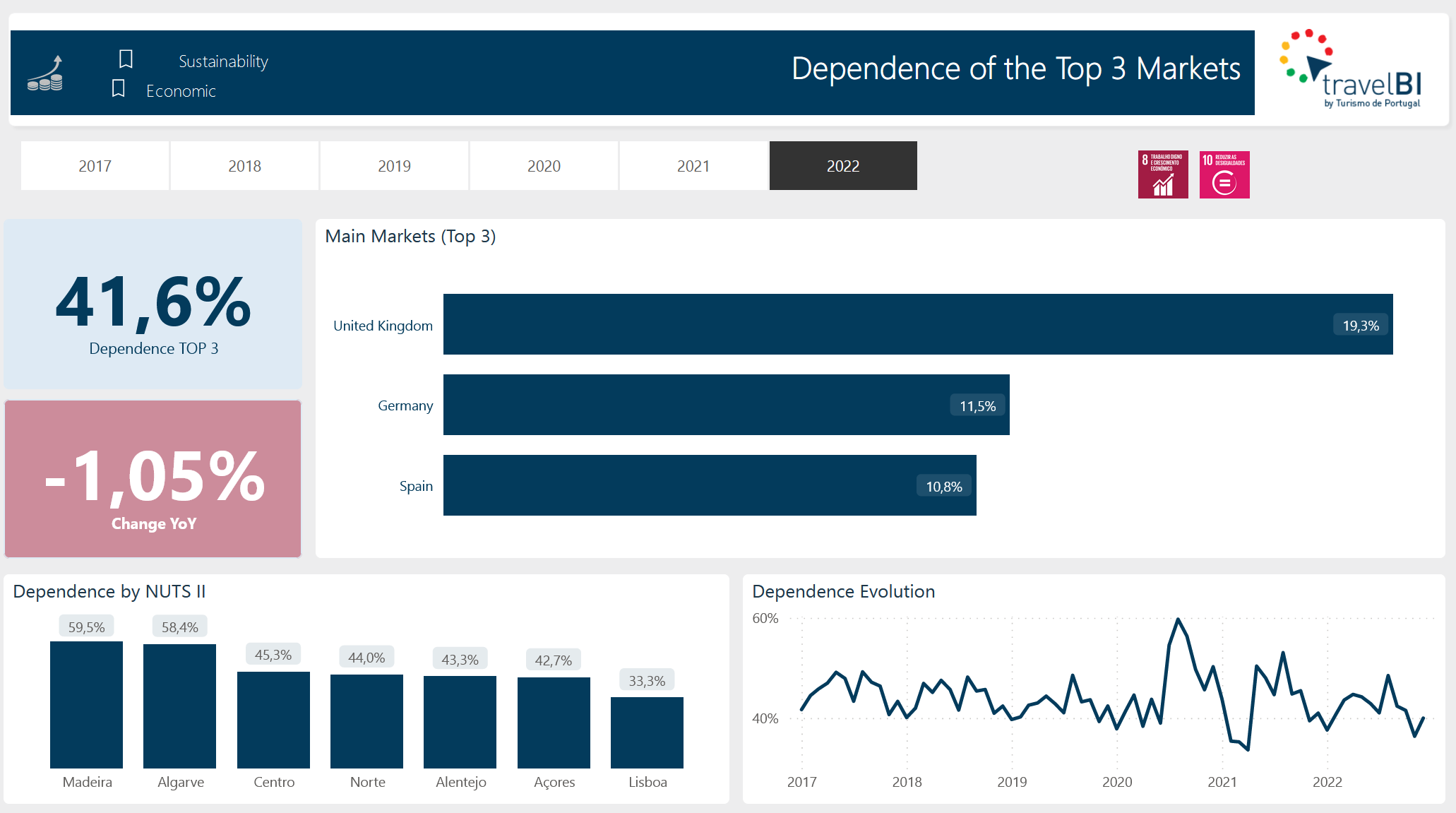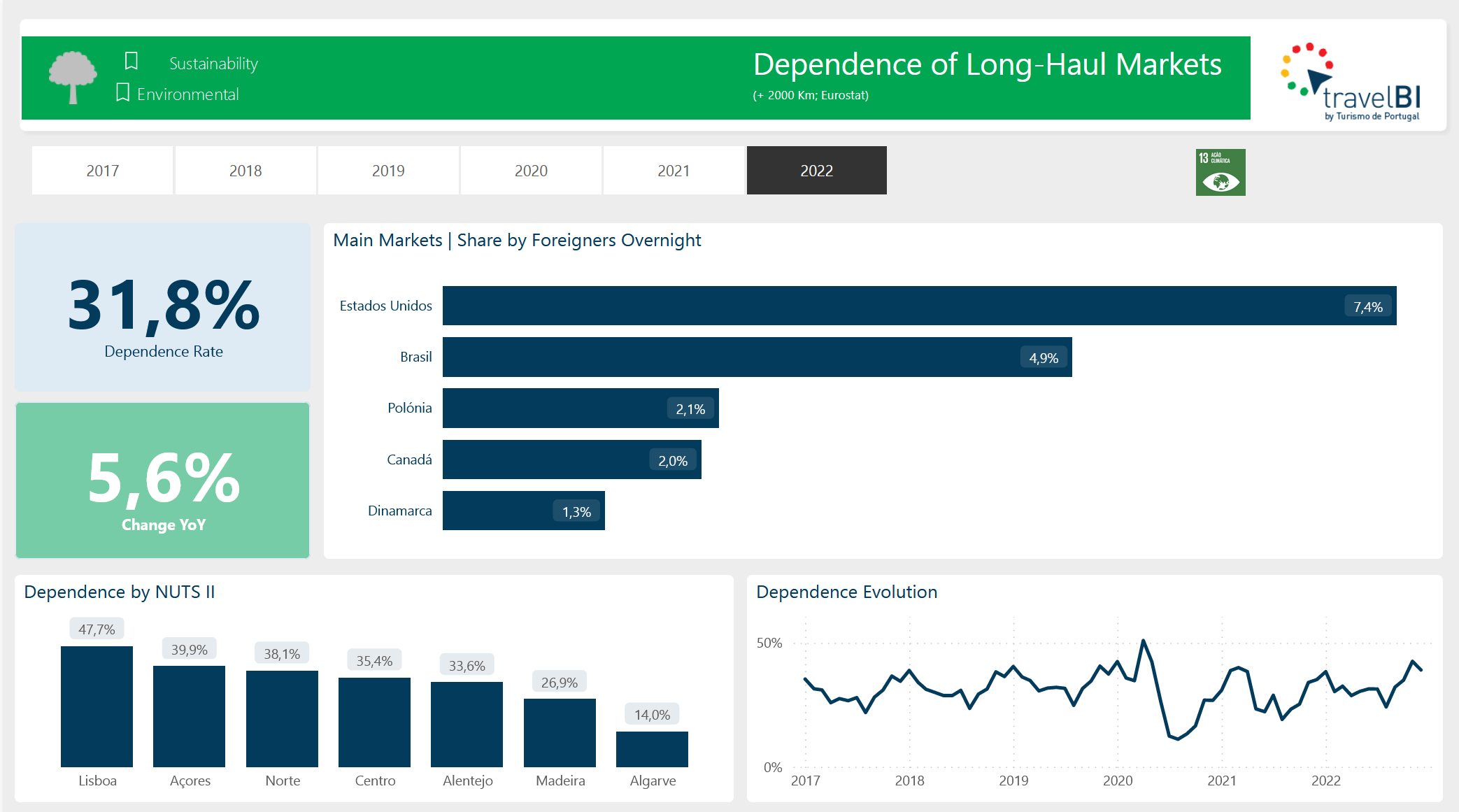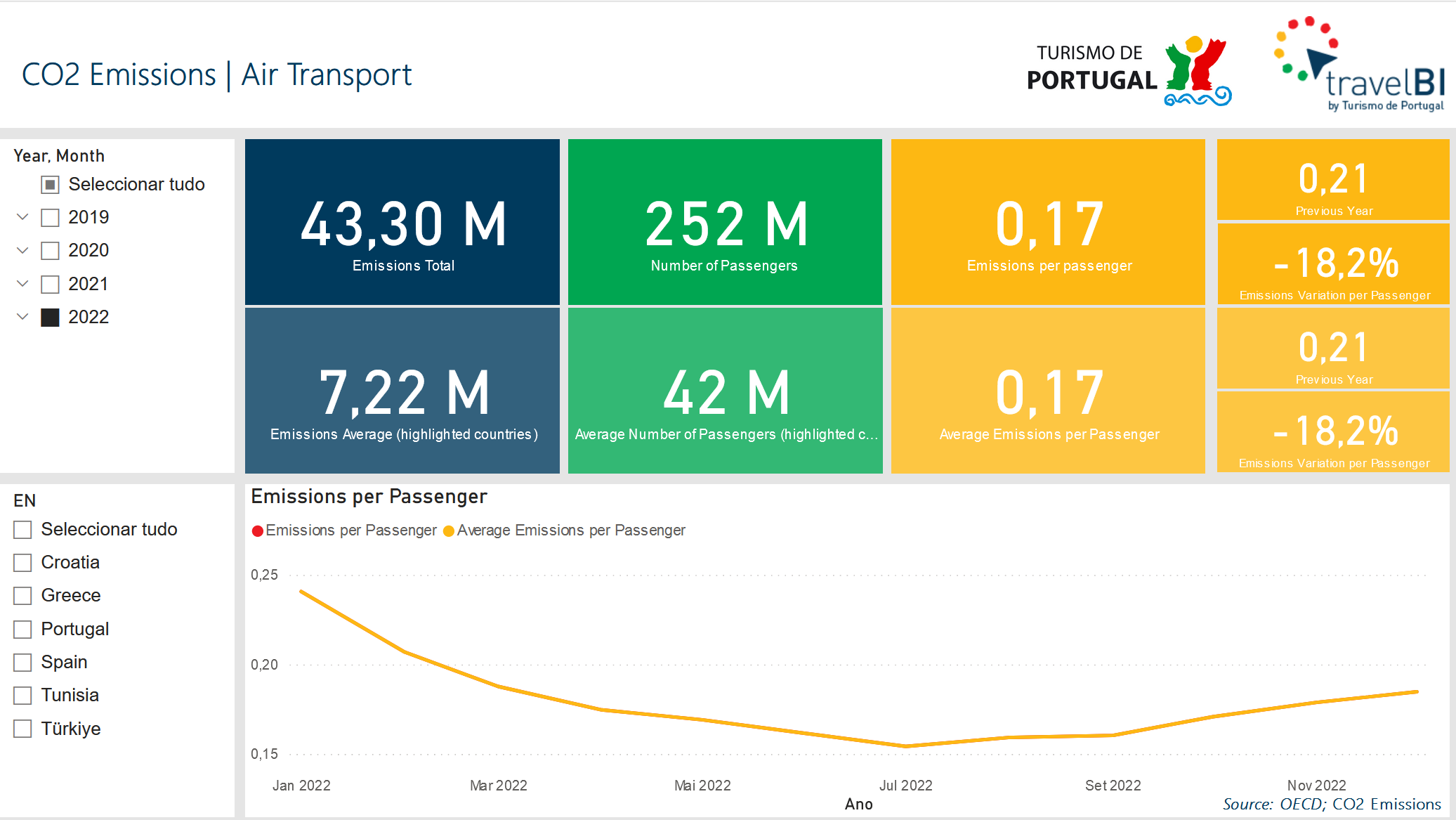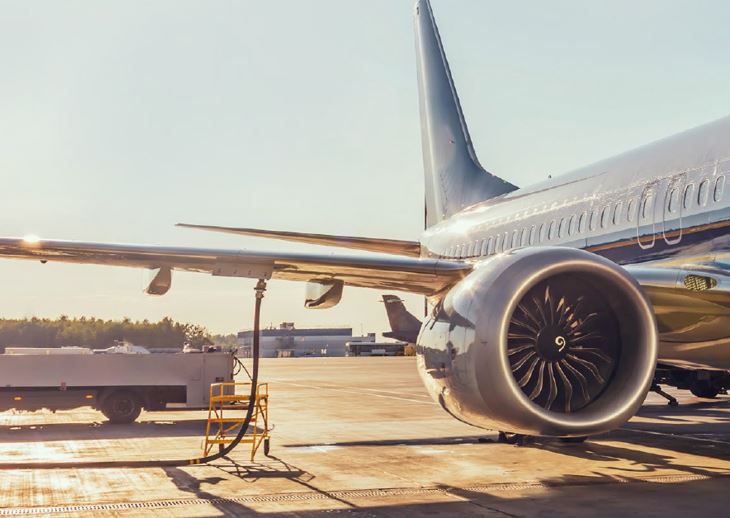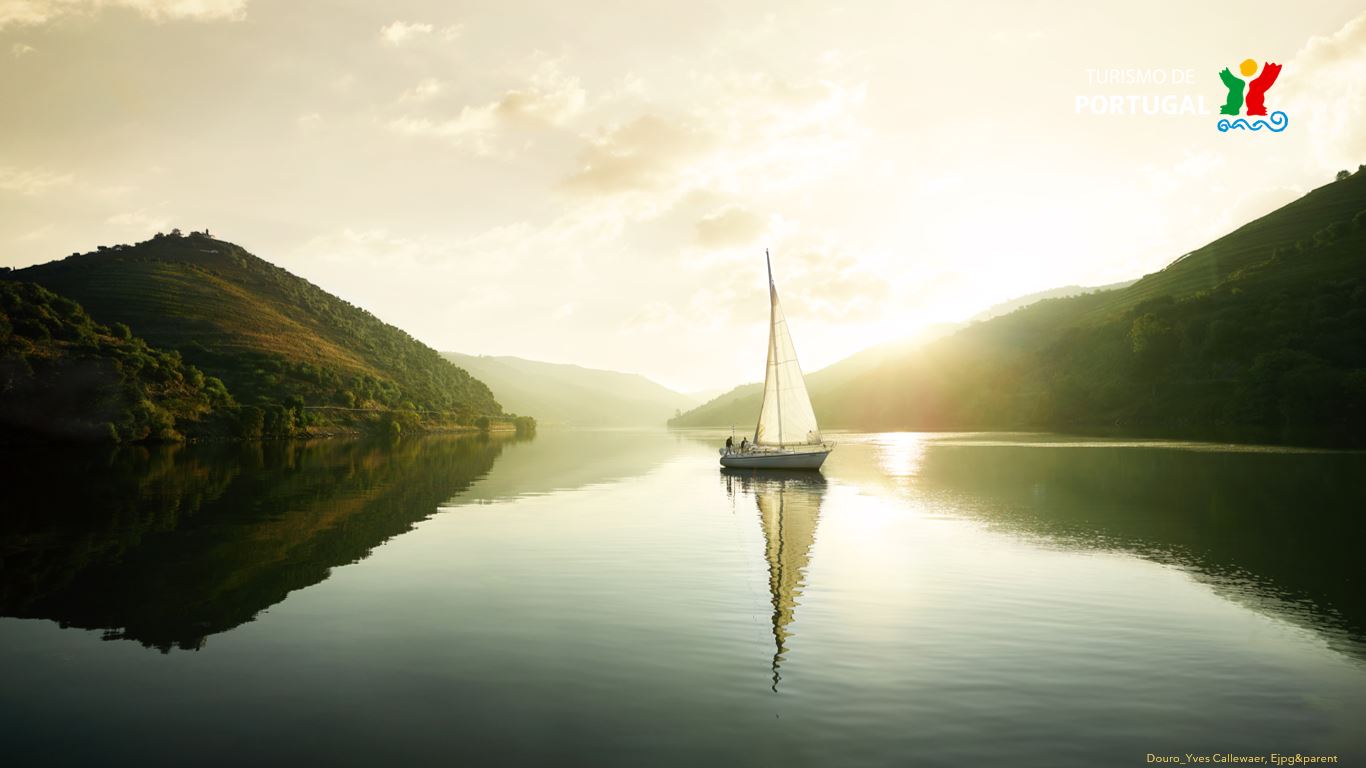Publication
Envisioning 2030: how can travel and tourism plan for a decarbonising world?
"Envisioning Tourism in 2030 and Beyond" is a research developed to help policymakers and all tourism industry stakeholders understand what a global, prosperous and decarbonised tourism industry could look like by 2030 and through 2050, when tourism and all other human activities must achieve net zero greenhouse gas emissions.
The objective of this report is to explore what the tourism sector could look like in a context of a prosperous and decarbonised economy at the 2030 and 2050 horizons. A system dynamics model (GTTMdyn) was used to test various decarbonisation pathways that would achieve the targets set out in the Paris Agreement. It concluded that there is only one plausible decarbonisation scenario that would allow the tourism sector to continue to grow as expected, maintaining its significant contribution to socio-economic development, while meeting the net zero emissions target.
The GTTMdyn model provides plausible future scenarios on a global scale and considers direct emissions from the transport and accommodation industries, including all trips, domestic and international, of at least one night away from home, for holiday/leisure, business or visiting friends and family and across all modes of transport.
The report finds a single scenario for achieving zero emissions, in net terms, by 2050, being compatible with economic growth. To achieve this scenario, key recommendations include:
- more countries to include control of emissions from commercial aviation in their plans, considering the objectives set in the Paris Agreement;
- strategic development of the sector aiming at a growth in the proportion of short-haul travellers and increasing the offer of carbon-neutral tourism products;
- increasing investment in greener forms of transport by governments and their use being promoted by the travel industry;
- relying less on carbon offsetting as a compensating solution and focusing more on decarbonisation of activities;
- the need to consider equity and fairness, recognising that some destinations are more prepared for the scenario than others;
- slowing down the expected rapid growth in aviation by imposing limits on the number of long-haul flights.
The report has been compiled by the Travel Foundation with the Centre of Expertise in Leisure, Tourism and Hospitality, Breda University of Applied Sciences, the European Tourism Futures Institute, and the Netherlands Board of Tourism and Conventions.
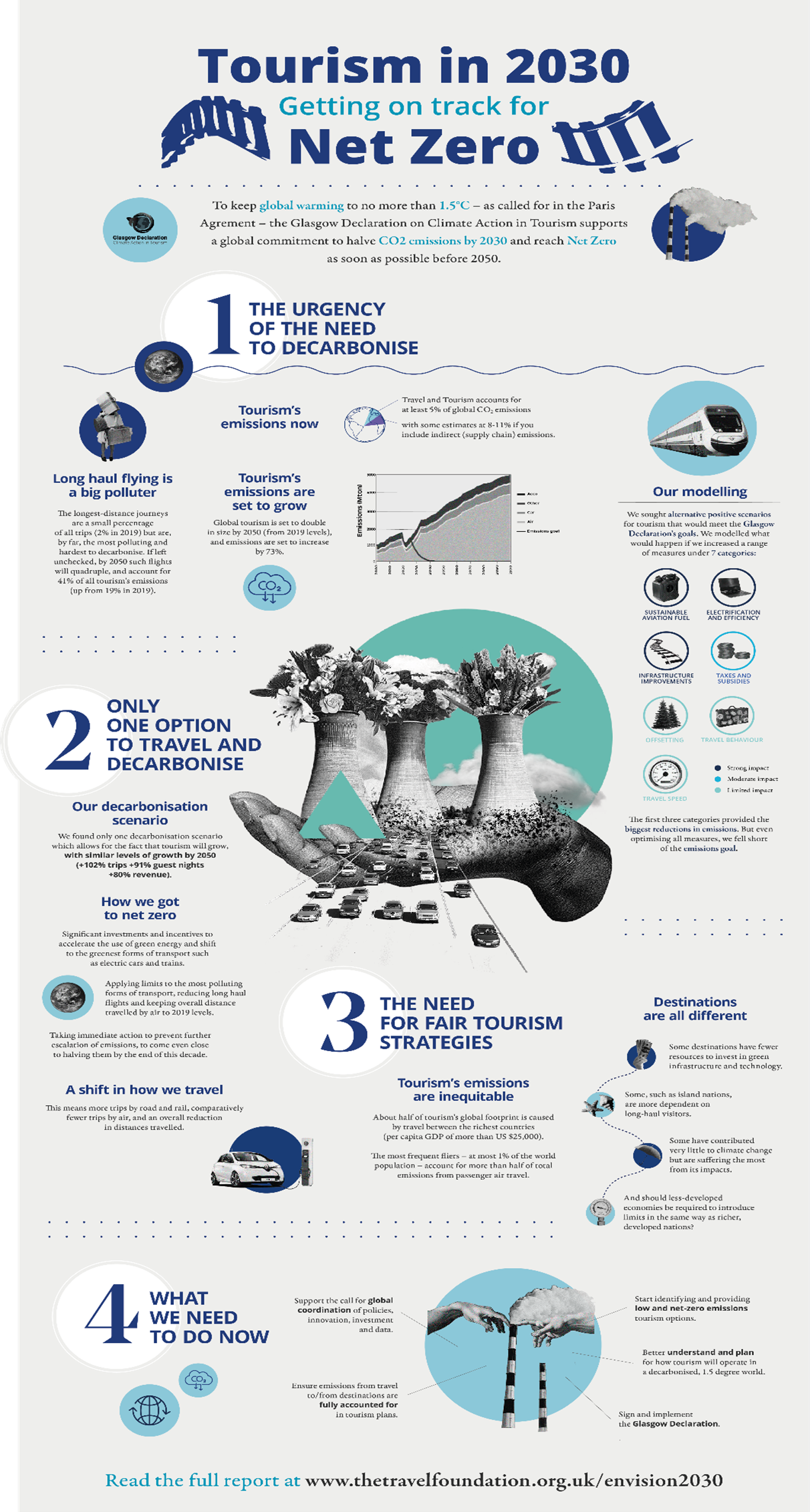
Full report: Envisioning Tourism in 2030 and Beyond


